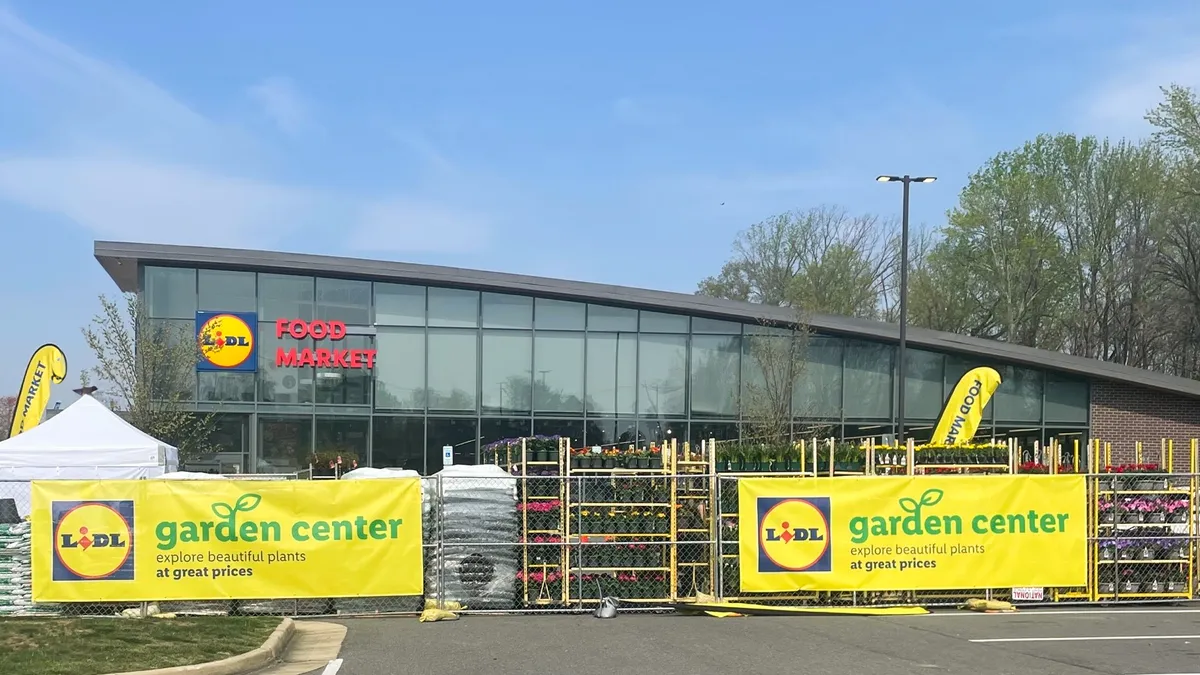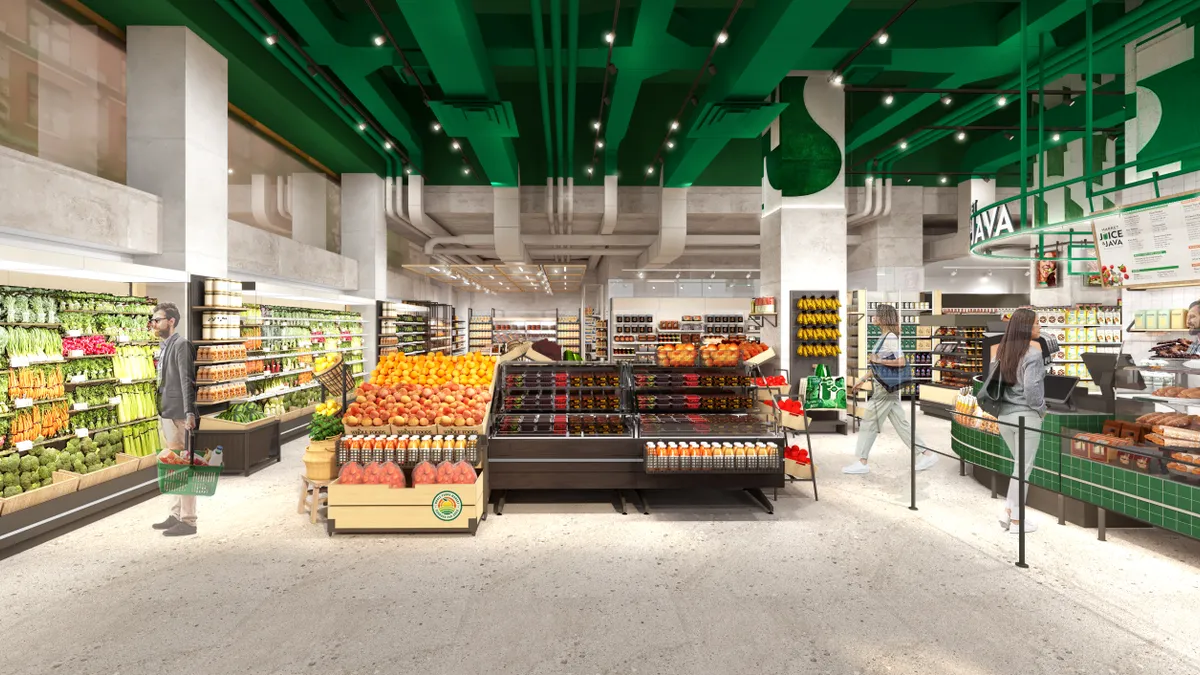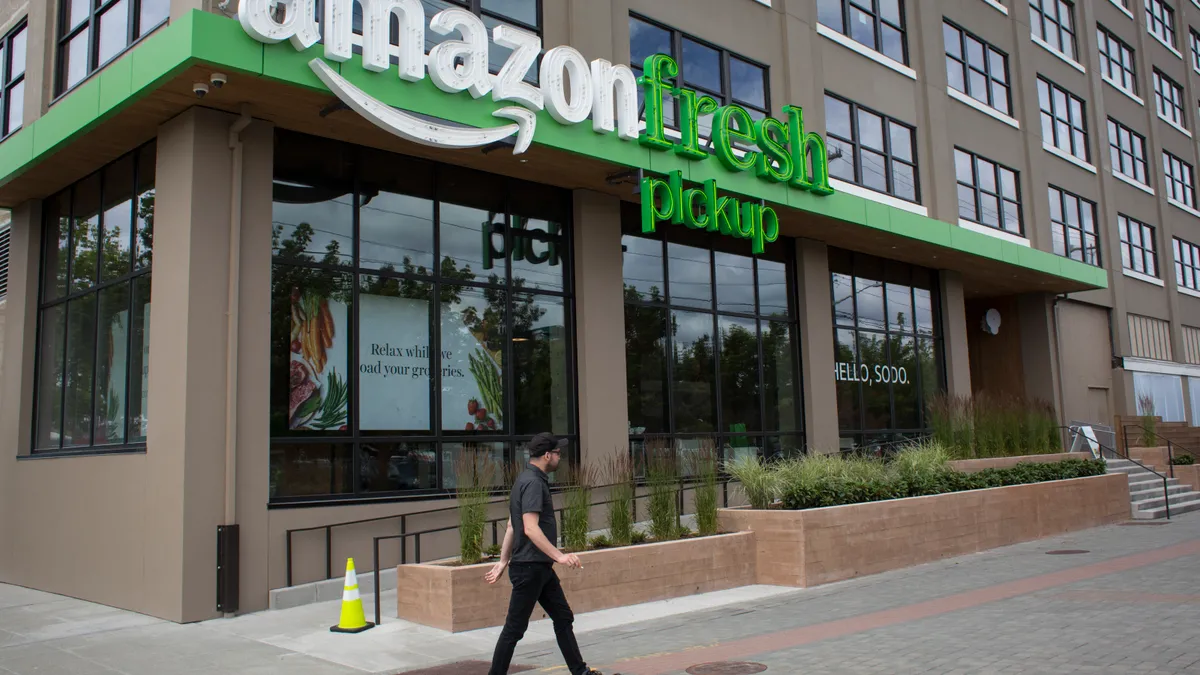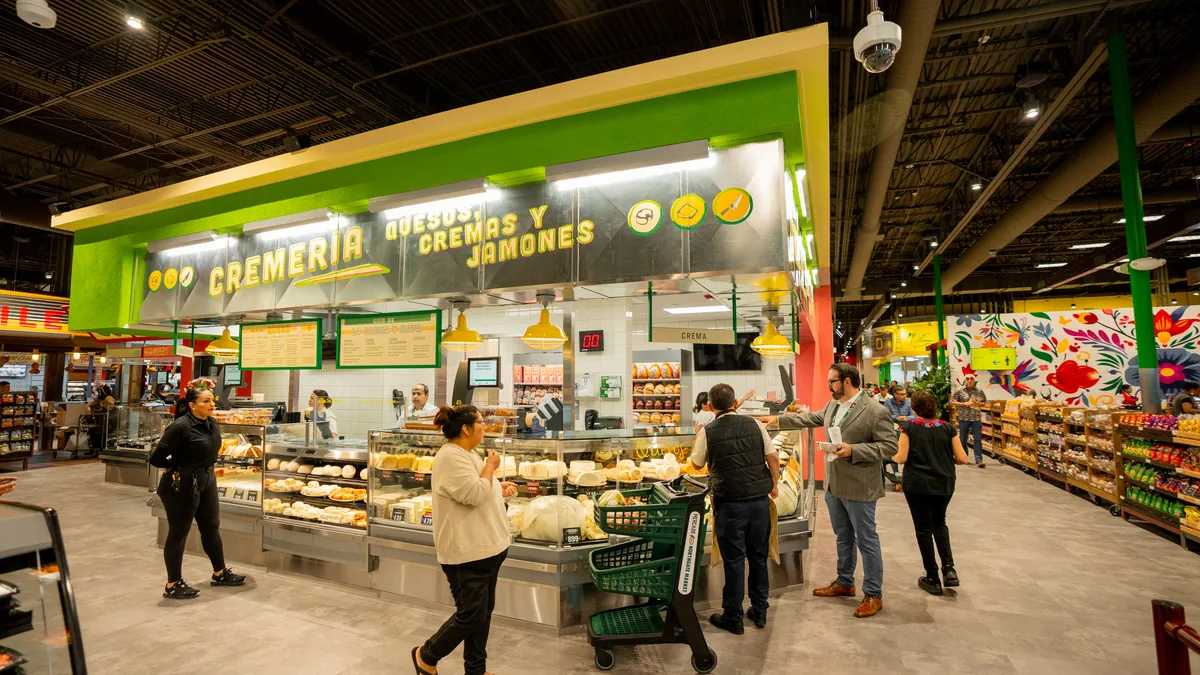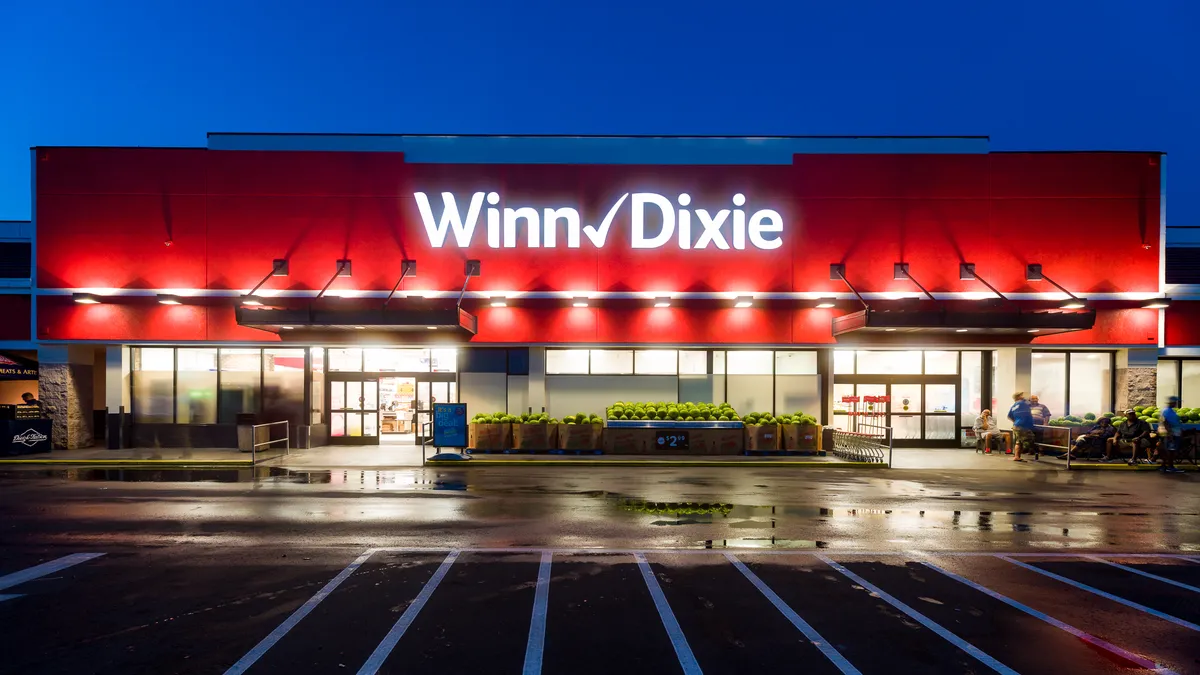As the New Year approached, our thoughts turned to the future of the food business in 2015. We wrote a feature on how restaurant trends might shape the industry come this year, but we wanted to delve deeper into the subject.
So back in 2014, Food Dive reached out for your predictions on what’s to come in 2015. Here, we’ve compiled a list of responses from some of the submissions we received, and have grouped them by some trending topics we’ve seen in the space:
Social media
Cathy Kapica, certified food scientist and public health expert; CEO, The Awegrin Institute
"With the rise of social media, self-styled nutrition experts will continue to dominate the nutrition landscape. This will make it increasingly difficult for science-based messages to have an impact. This is due to a combination of factors, including: the emotional appeal of ‘everyday’ folks ‘sharing their stories’ [I believe]; the desire for only sound bites of information with clear conclusions; and the scientific illiteracy of the general public. Difficult conversations will, therefore, continue around GMOs, other emerging food technologies, the reality of feeding a growing world population, and the truths about such things as organic, gluten-free, and ‘processed’ food."
Phil Lempert, founder and editor of SupermarketGuru.com
"Brands that are using social media to encourage discussion and answer questions are also poised for success. The ones who merely use it as an ad or platform to give away coupons? Not so much. Great examples of doing it right on Facebook: Healthy Choice Marie Callender’s and Hebrew National franks."
Brian Weddington, vice president/senior credit officer, Moody’s Investors Service, Inc. (Moody's Investors Service report)
"Consumers have been conditioned to hunt for bargains and are increasingly aided by smart phones, social media and electronic couponing to uncover ways to get more for less. As a result, food companies are likely to remain cautious about investing in premium product launches. Rather, they will continue to rely on brand extensions and price promotions that deliver everyday low prices and that reduce price gaps."
Manufacturing
Nini Virtusio, R&D director at Columbus Vegetable Oils
"When the Food and Drug Administration declared partially hydrogenated oils (PHOs) a possibly unsafe food ingredient in November 2013, it naturally sparked an increase in demand among food service professionals and manufacturers for oil alternatives. These alternatives include palm oil, canola, and sunflower oils. Salad dressing mostly uses liquid vegetable oils that are not partially hydrogenated such as soybean, canola, corn, olive, safflower and sunflower oils. We do not foresee the demand for these alternative oils and fats slowing down any time in the near future. Companies have been forced to reformulate, reprocess, and adjust the moderation of the manufacturing process to meet new industry standards, and so long as the transition is underway, there will be a steady request for specialty oils and oil blends that are PHO-free, but still offer similar functionalities (melting point, crystal habit, extended shelf life, etc.)."
Hank Lambert, CEO of PURE Bioscience
"With regards to food safety, key trends/developments will be (in no particular order): 1) Developments/outcomes from the USDA’s Salmonella Action Plan to reduce the persistence of Salmonella through the poultry processing cycle; 2) Regulations coming out of the FDA resulting from the Food Safety Modernization Act (FSMA), especially regarding requirements for preventive controls programs for manufacturers and foreign supplier verification; 3) increasing consumer education/building consumer awareness on safe food handling (safe temperatures for cooking and holding, avoiding cross contamination, etc.); 4) increasing focus on combating norovirus in environments like restaurants and cruise ships; 5) Increased focus on eliminating the risk of Listeria contamination in food processing plants."
The growing snacking trend
Jean Heggie, strategic marketing lead, DuPont Nutrition & Health
"At DuPont Nutrition & Health we are constantly conducting focus groups and research to ensure manufacturers are producing applications that meet consumer needs and demands. Our most recent study has identified that for 2015, when formulating snacks, food manufacturers should keep three demand drivers top of mind: health, convenience, and portability. With snacking on the rise, increased 47% since 2010, consumers are looking to snacks to specifically deliver nutritional health needs, and must be easy to prepare or travel well to support their busy, active lifestyles."
Brian Weddington, vice president/senior credit officer, Moody’s Investors Service, Inc. (Moody's Investors Service report)
"We expect food companies to focus on targets in faster-growing categories like snacks, organic and natural foods, and to pay high premiums to secure prime targets in a highly competitive environment."
Lawsuits
David Benzaquen, CEO and founder of PlantBased Solutions
"We predict that Unilever will drop or lose its standard of identity lawsuit against Hampton Creek Foods, igniting a wave of challenges to outdated standards of identity that limit the freedom of more sustainable, healthy and ethical plant-based foods and beverages to use words traditionally reserved for animal products." (Editor's note: Unilever did drop its lawsuit after this submission was received).
The grocery space
Phil Lempert, founder and editor of SupermarketGuru.com
"Online grocery is quickly evolving into same day grocery delivery. Amazon taught us what our grandparents lived with: order from a store and later in the day your purchase would be delivered. Today, there is just a lot more of “us” so delivery options and operational execution became more difficult. I would venture that we (at least here in the U.S.) have always been a “want it now” society so this next iteration comes as no surprise. Technology has caught up with our desire and Google Express will put just about every food retailer in the same-day delivery business. These advances will change the way we shop. No longer a shopping trip to a store once or twice a week will be acceptable; now it shifts to us thinking about each meal – going online to order it and then having it delivered. Lunch to the office, a sack full of ingredients based on a recipe we find online delivered with the correct portion of ingredients for five and delivered within 10 minutes of getting home. Fast gets even faster, more precise and more customized."
Dan Horan, VP marketing and sales, Intevation Food Group LLC
"It seems clear that the steady movement towards cleaning up product ingredient decks will become more prominent as major supermarket chains work with manufacturers to achieve this goal in order to satisfy growing consumer education and demand."









